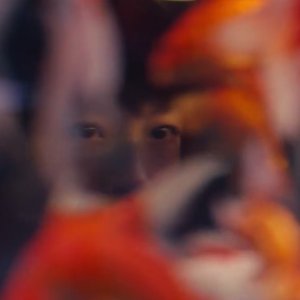This review may contain spoilers
Wordlessness Is Not Silence
A show-stopping movie I have kept in the closet for later perusal for a long time now. We rarely see such profound acting anymore in popular cinema, and I am grateful for this website especially for the movies it recommends me and which I would never get to know about or to see in theaters in my country.
I don't know where to start praising: the cast, the music, the filming, the deceptive play of plain colors, the themes of abandonment. The fact that rather than having the two lead characters have open conversations, the dialogue is spoken over them, instead of by them, by other characters. It doesn't matter if these characters are the nice cop or the mean one, the bullies or the acquaintances, family itself. Decisions are taken over their lives in discussions they will not join, and their true feelings and wishes remain wordless—but not silent.
Facial expressions, isolated words, the ways of physical contact: those are the dialogue that the main characters engage in. And nothing is as breath-taking about it than the entirely silent exchange they have through the glass window, looking at each other with the other's reflection superposed to their face, the slightly off-tempo of the smiles and tears and begging they give.
The flash-forward at the start which becomes the time-skip of the ending is all the more poetic. This was, used to be, is, their playground: their relationship has not vanished despite the years of separation, and the revolute time can always be brought back. And here comes the play of colors: the little girl's yellow clothes and Chen Nian's yellow prison uniform, and how Chen Nian takes the shackles of those clothes off the girl as she walks her home...
In fact I would say this story is not so much preventive toward school bullying as it is a tender testimony of loneliness, although its public interest did cause significant changes in order to help victims. It is abandonment by family, friends—Chen Nian refusing to answer the dead girl's plea at the beginning,—the school system, the justice system. But it is also about bringing the lonely together and how lifestyle does not indicate the humanity in one's heart.
Dialogue crushes and avoids the scarcely-speaking main characters, but they are certainly not silent.
I don't know where to start praising: the cast, the music, the filming, the deceptive play of plain colors, the themes of abandonment. The fact that rather than having the two lead characters have open conversations, the dialogue is spoken over them, instead of by them, by other characters. It doesn't matter if these characters are the nice cop or the mean one, the bullies or the acquaintances, family itself. Decisions are taken over their lives in discussions they will not join, and their true feelings and wishes remain wordless—but not silent.
Facial expressions, isolated words, the ways of physical contact: those are the dialogue that the main characters engage in. And nothing is as breath-taking about it than the entirely silent exchange they have through the glass window, looking at each other with the other's reflection superposed to their face, the slightly off-tempo of the smiles and tears and begging they give.
The flash-forward at the start which becomes the time-skip of the ending is all the more poetic. This was, used to be, is, their playground: their relationship has not vanished despite the years of separation, and the revolute time can always be brought back. And here comes the play of colors: the little girl's yellow clothes and Chen Nian's yellow prison uniform, and how Chen Nian takes the shackles of those clothes off the girl as she walks her home...
In fact I would say this story is not so much preventive toward school bullying as it is a tender testimony of loneliness, although its public interest did cause significant changes in order to help victims. It is abandonment by family, friends—Chen Nian refusing to answer the dead girl's plea at the beginning,—the school system, the justice system. But it is also about bringing the lonely together and how lifestyle does not indicate the humanity in one's heart.
Dialogue crushes and avoids the scarcely-speaking main characters, but they are certainly not silent.
Was this review helpful to you?









